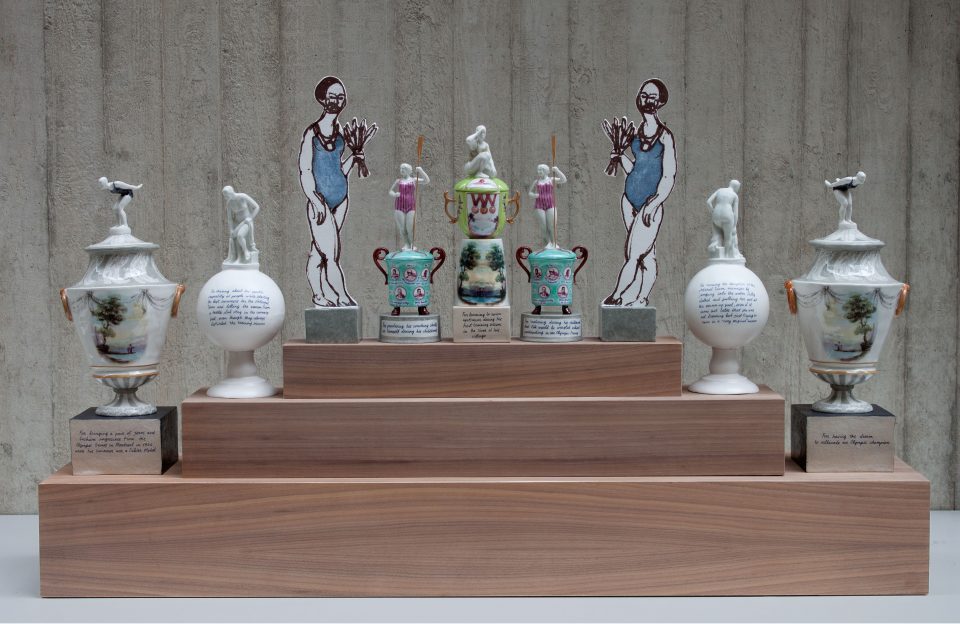
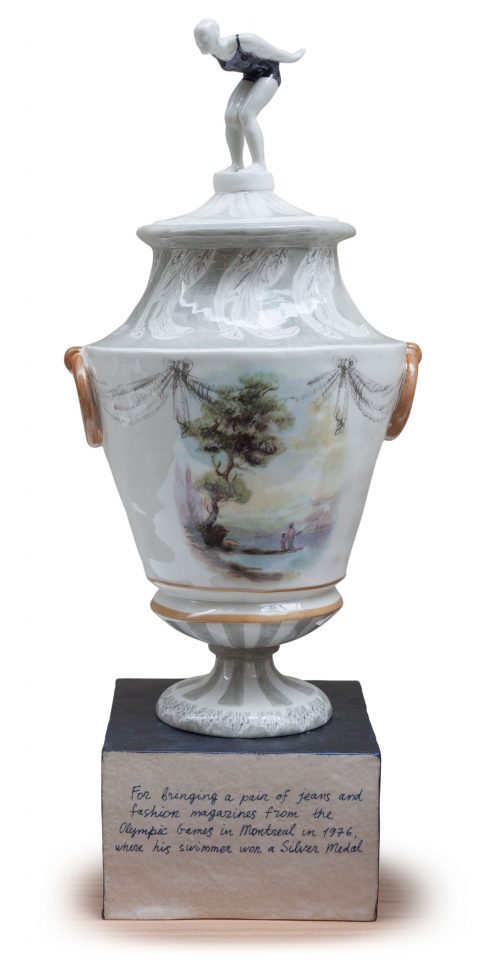 3.2-5aH ~44 cm | For bringing a pair of jeans and fashion magazines from the Olympic Games in Montreal in 1976, where his swimmer won a Silver Medal
3.2-5aH ~44 cm | For bringing a pair of jeans and fashion magazines from the Olympic Games in Montreal in 1976, where his swimmer won a Silver Medal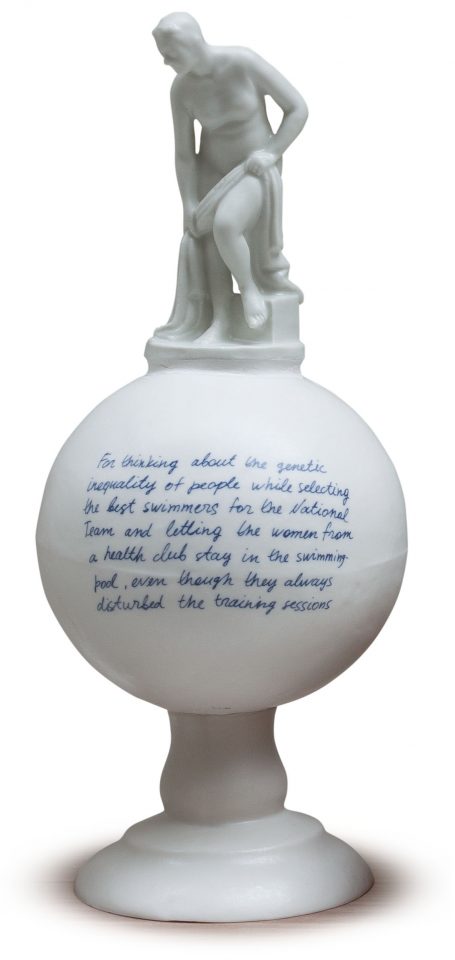 3.2-4aH ~32 cm | For thinking about the genetic inequality of people while selecting the best swimmers for the National Team and letting the women from a health club stay in the swimming pool, even though they always disturbed the training sessions
3.2-4aH ~32 cm | For thinking about the genetic inequality of people while selecting the best swimmers for the National Team and letting the women from a health club stay in the swimming pool, even though they always disturbed the training sessions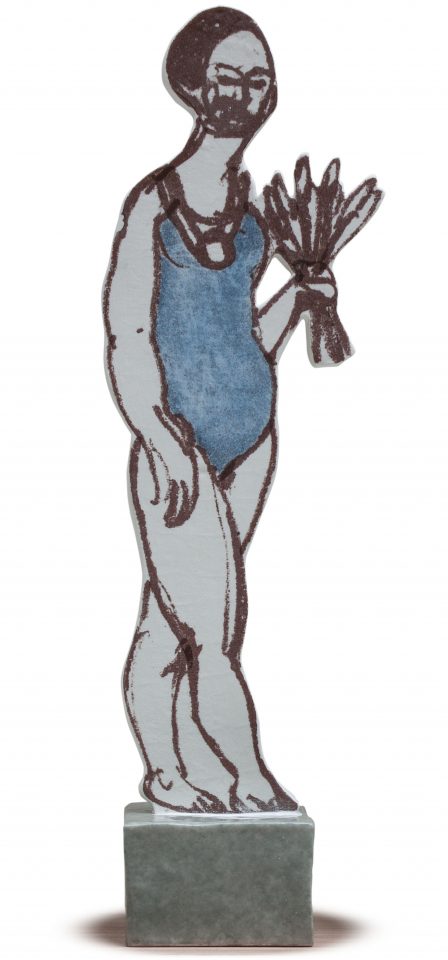 3.2-3aH ~40 cm | For escaping through the window of the military academy after having been drafted and then going instead to study at the institute of physical education
3.2-3aH ~40 cm | For escaping through the window of the military academy after having been drafted and then going instead to study at the institute of physical education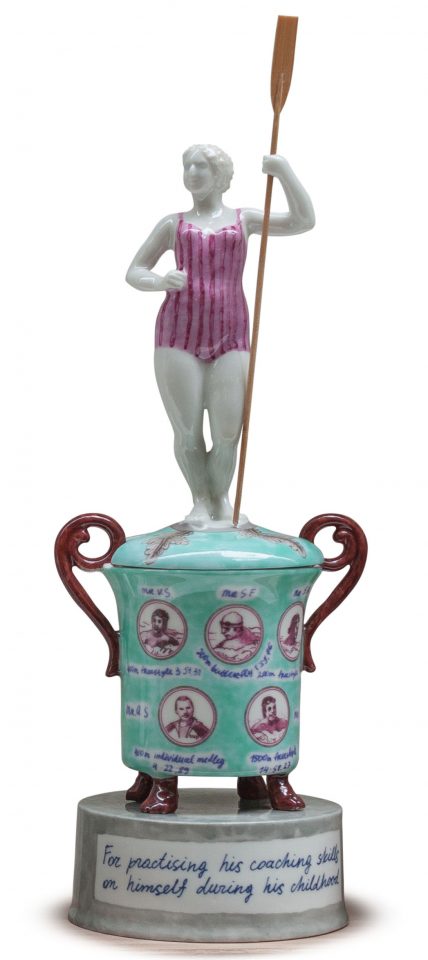 3.2-2aH ~32 cm | For realising during his childhood that life would be wasted without participating in the Olympic Games
3.2-2aH ~32 cm | For realising during his childhood that life would be wasted without participating in the Olympic Games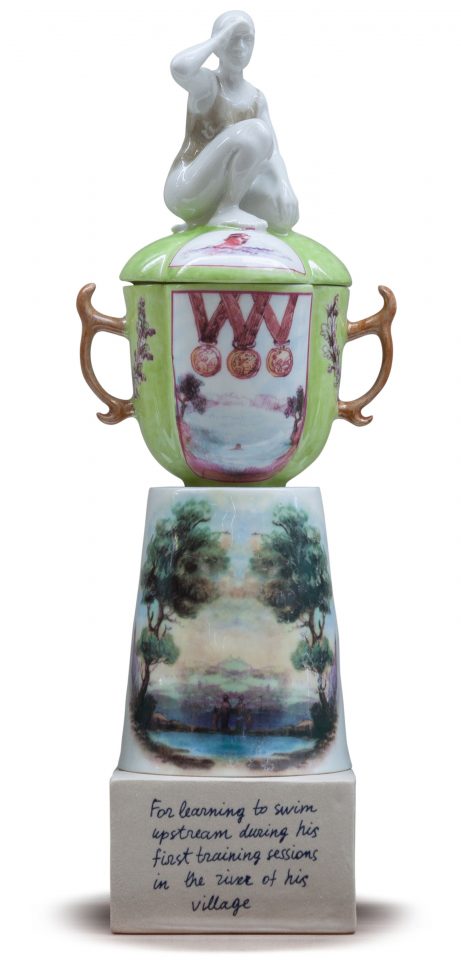 H ~33 cm | For learning to swim upstream during his first training sessions in the river of his village
H ~33 cm | For learning to swim upstream during his first training sessions in the river of his village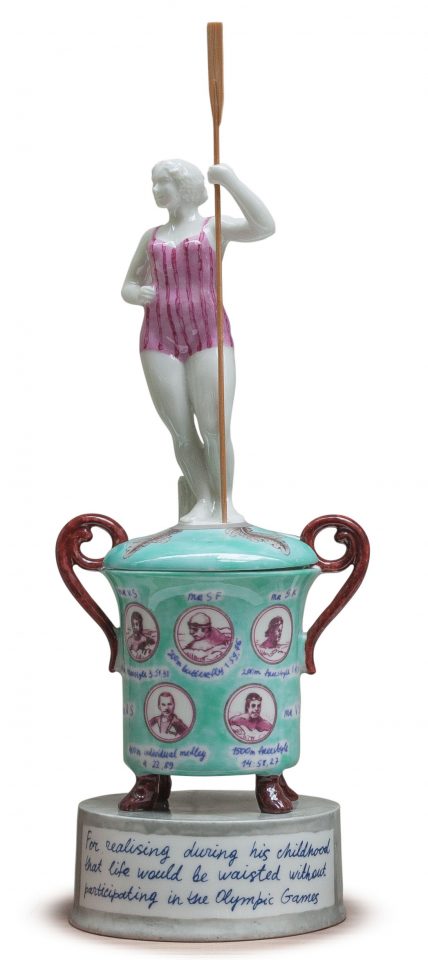 3.2-2bH ~32 cm | For practicing his coaching skills on himself during his childhood
3.2-2bH ~32 cm | For practicing his coaching skills on himself during his childhood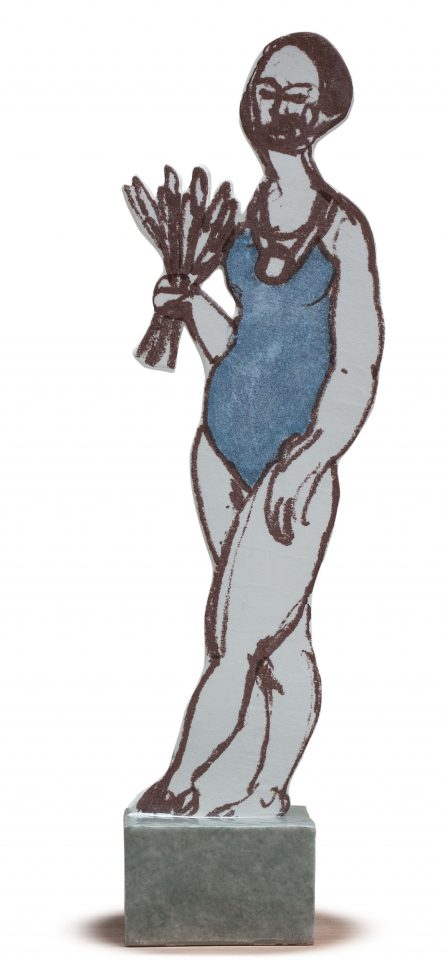 3.2-3bH ~40 cm | For moving away from his village
3.2-3bH ~40 cm | For moving away from his village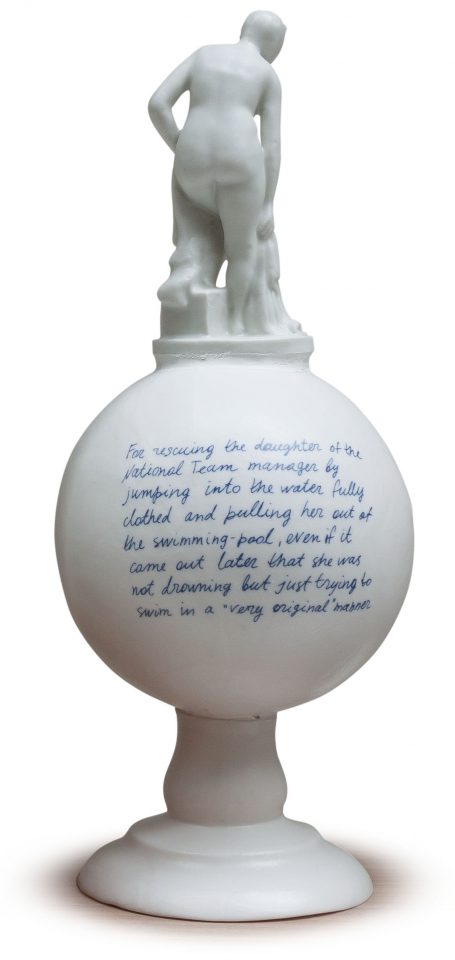 3.2-4bH ~32 cm | For rescuing the daughter of the National Team manager by jumping into the water fully clothed and pulling her out of the swimming pool, even if it came out later that she was not drowning but just trying to swim in a “very original” manner
3.2-4bH ~32 cm | For rescuing the daughter of the National Team manager by jumping into the water fully clothed and pulling her out of the swimming pool, even if it came out later that she was not drowning but just trying to swim in a “very original” manner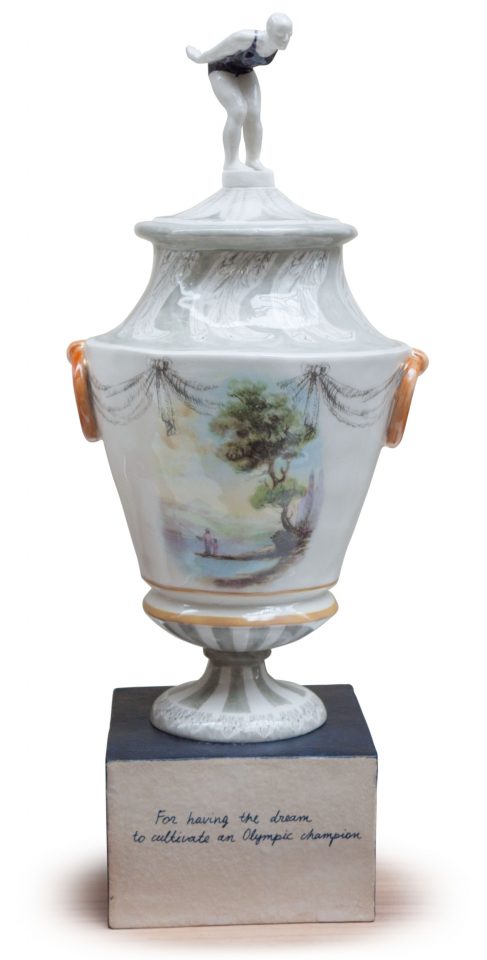 3.2-5bH ~44 cm | For having the dream to cultivate an Olympic champion
3.2-5bH ~44 cm | For having the dream to cultivate an Olympic champion-
The Trophy Cups,
or What Could have Happened to My Father.Since my childhood I have already known that one of the biggest misfortunes, which could happen to a person, is to live with the feeling, that you have not realized your talent and just wasted your life. I even remember that chill coming over my heart that this can happen to me as well. I do not know why, but I could hardly imagine anything worse than that.
My father was a swimming coach. He was born in a small village. When he was a child he went regularly to a local river to swim and to exercise, trying to find out his own swimming technique and to improve his results. In other words, he had a vocation to become a coach. I have to smile every time when I try to imagine how my father was coaching himself as a child.
Almost 30 years ago my father was one of the best coaches in the Soviet national swim- ming team. He was very innovative and devoted to his work; he had his own vision of coaching methods. It was extremely important to him to have a success, to get better results, to win. The swimming pool was his second home. After working with him his swim- mers essentially improved their results. That time was a heyday of his career. He was invited to move from provincial Minsk to Leningrad or to Moscow. He was also invited to work as a coach in the USA and Canada; sport magazines were publishing articles about his coaching methods. He told me that at least ten of his swimmers were on their way to Olym- pic medals.
But then some circumstances started to hinder his career. My mother did not want to move to Leningrad or to Moscow. To move abroad was also impossible to my father, because the family could not go with him. Also his straight character and his intransigence to an incom- petence of the sport functionaries had a consequence that he was slowly removed from the leading position. Even to the Olympic games in Canada, where his swimmer won a medal, my father went not as a coach, but as a tourist, watching his victory from stands as an ordi- nary sideliner. For many years his best and most promising swimmers were taken away from him and transferred to other coaches. At a certain moment he became very frustrated and decided to leave the professional sport, feeling totally unrealized and underestimated as a coach. He could prepare many champions, but instead he had to finish his career as an ordinary sport teacher at the University in Minsk.
I always felt that my father had a lot regrets and unrealized ambitions. These days he is devoted to some other than sport matters. He became an art admirer and started to collect paintings. He often goes to the village, where he was born and grown up. He likes to walk there in the places, where he trained himself as a child. And I think he is very happy, because now he sees everything around him with the different eyes, as an artist. I also think, that he always was an artist.
At that time, when he left his job as a coach, he probably thought, that his life was over. But in fact, talent and ambitions can be realized in some other ways and forms than we think, and these ways can make us even happier. As my grandmother would have say about my father’s sport career: "Plague take it!"
So now, in this work, I also try to reflect on, what is at the end a "realization"? Could it take different forms? Maybe the most important thing is not a professional success, but rather that, what is left in shadow, is much more important and valuable?
Supported by the Mondriaan Fonds and The Frozen Fountain.
-